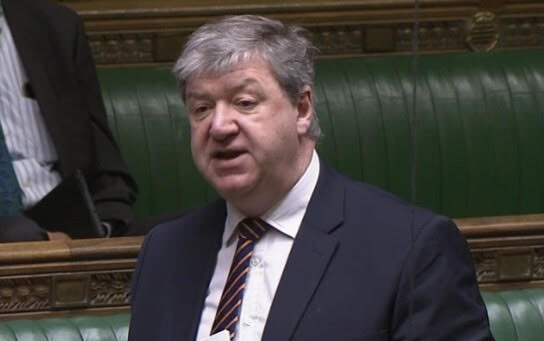Hospital cleaning and catering to be brought back into the NHS
By ROSALIND GRIFFITHS
HOSPITAL cleaning and catering in Shetland are to be taken back within the NHS, Scottish public health minister Shona Robison revealed during a visit this week.
Ms Robison, who was in Shetland to conduct the annual review of the health board, said the move would be important in improving standards of cleanliness and in the fight against hospital acquired infections.
Hospital services throughout Scotland will come back under the NHS as contracts come up for renewal, in line with the policy announced at the SNP conference at the weekend. Current contracts are not affected.
In Shetland the changeover from the private contractor Sodexho to the NHS will happen when the contract comes up for renewal in January 2012.
Ms Robison said: “This does not affect existing contracts. Privatising [cleaning and catering] services was a very unhelpful turn of events which contributed to a drop in standards.” She said she was confident standards would improve when cleaning and catering were brought back in-house.
NHS Shetland finance manager Nick Kenton said the board had only been notified of this decision on Monday. He said that the guidance applied to “soft facilities management such as cleaning and catering”.
No details of staffing arrangements have yet been worked out, and Mr Kenton said: “We have a good working relationship with Sodexho and we will obviously work through the implications of this decision with them once more details are available.” He said it was too soon to know how many people could be affected.
The decision not to include cleaning, catering and other “soft services” in any future public-private partnership schemes has been welcomed by the GMB, the union which represents NHS domestics, catering staff and porters.
GMB Scotland’s senior organiser for public services Alex McLuckie said: “GMB Scotland has fought and argued through the private finance initiative era, fought and argued through the public private partnership era that soft services such as catering, cleaning, portering and janitorial did not need to transfer to the private sector. This announcement is welcome news, but we need to see it extended so that it covers local government projects as well.”
During her visit to a gale-swept Shetland Ms Robison subjected NHS Shetland to rigorous examination in its annual review and found it to be in good health.
Hospital acquired infections are low in Shetland, she heard during the review, around 10 per year, and have been confined to individual cases. There has never been an outbreak.
Each case is reported and subjected to stringent surveillance. Attention has recently been focused on hand washing for anyone, including visitors, entering clinical areas, and a new antibiotic policy is being revised to ensure optimum prescribing.
Ms Robison was satisfied with the board’s performance on waiting times and financial targets, and welcomed the stronger links with NHS Grampian being forged, including in tele-medicine. Extra funding recently awarded to NHS Shetland from the Scottish government to strengthen partnership working with NHS Grampian is being used for specialist work on “estates” (NHS buildings).
Ms Robison probed the board about dental services. Shetland is short of two dentists, she was told, and ideally there should be three more dentists in the isles. Ms Robison acknowledged it was a national problem. NHS Shetland chief executive Sandra Laurenson said that two vocational trainees were now working in Shetland and links with Aberdeen Dental School could mean new recruits for the future.
Mental health was another area in which Ms Robison and NHS Scotland chief executive Kevin Woods questioned the board, in particular the continuity of care when a patient is discharged from hospital in Cornhill.
Director of public health Sarah Taylor said that there was now better liaison between services and an attempt to fill the gap between the statutory service crisis support and admission to hospital.
The board was found to be performing well in dementia services and in having no delayed discharges.
Following a letter from a member of the public about the poor standard of the surgery and nurse’s house in Fair Isle, the board told Ms Robison that director of clinical services Simon Bokor-Ingram and assistant director of nursing Edna Mary Watson would be visiting the island on 21st November to meet islanders, with a further visit on 5th December to meet the National Trust.
Ms Robison asked to be kept informed of developments.
Earlier in the day Ms Robison presented prizes for an art competition on the subject of “what does health mean to you” and to employers for their contribution to “healthy working lives”.
The art prizes went to contemporary textiles student Jennifer Tait for her depiction of a cup of tea, which “cures all ills” and to 16-year-old Karen Jarmson for her heart-shaped collage of aspects of health at the NHS’s 60th anniversary. Both received a £200 voucher.
Entries by Graham Stewart and Annie Smith, nine, were highly commended and rewarded with a £10 voucher each.
The prizes were presented in the recently refurbished outpatients department of the Gilbert Bain Hospital, a spacious area described by medical director Ken Graham as “great to work in, more light and airy and more professional”.
A quick trip to the museum followed, with prizes for efforts made to keep staff healthy, mentally and physically, going to the Shetland Council of Social Service, NHS Shetland and Shetland Arts Development Agency. The assembled audience heard from Steve Bell from the Scottish Centre for Healthy Working Lives of the huge financial cost of people not coming to work. He praised the prize-winners for initiatives such as providing counselling and fresh fruit at work.




